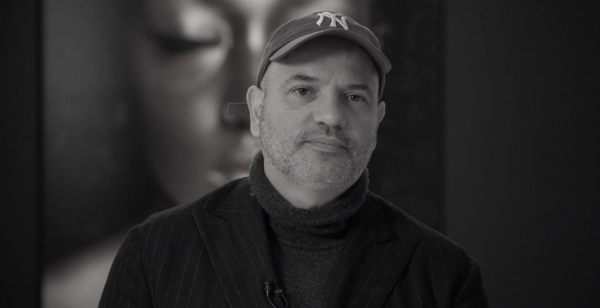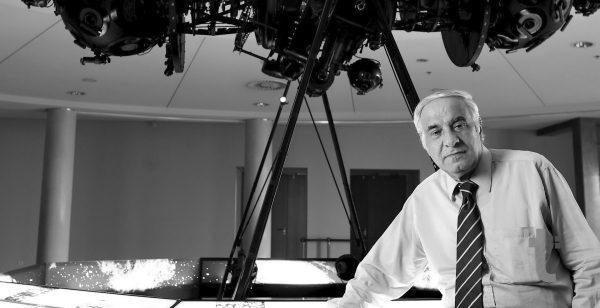Stelios Ramfos is a contemporary philosopher, academic and writer. He taught Philosophy at the Université de Vincennes à Saint - Denis. One of the topics he often elaborates on is the comprehension of the intellectual and spiritual characteristics of modern Greece that stem from Byzantium, the ignorance of which, as he states, makes the modern Greek psyche deficient. Stelios Ramfos declares that he’s an ardent optimist: "optimism, for me, is to see reality. Where there is a view of reality, the way is open to optimism." On the occasion of the pandemic and the internal fermentations it has caused to every human being, Stelios Ramfos believes that this is a good opportunity to think seriously about our weaknesses. "Because thinking seriously about my weaknesses means thinking about my soul", concludes the famous philosopher.
Thinking seriously about my weaknesses means thinking about my soul
By Makis Provatas
Translated by Alexandros Theodoropoulos
Stelios Ramfos is a philosopher, academic and writer. He was born and raised in Pangrati, Athens. Born in Athens in 1939, he spent his childhood years during the German occupation, thus without being able to play and feel like a child as he told ImpacTalk. However, he recounts playing basketball later with Karolos Papoulias and football with his classmates inside the Parthenon, something that made him "familiar with such world masterpieces".
He considers a turning point in his life when he told a high school teacher that he had read a book by Marx during the summer and the teacher replied: "just read everything". “The fact that the teacher gave me the freedom to read everything, set me free", he reveals.
As a young man and student, he became very interested in politics but later he realised that "the more he was interested in politics, the more he didn’t care about himself”, so he refused to get involved regardless of the many proposals he had, as he told ImpacTalk without hesitation. He felt that if he had been involved, he would have lost his freedom.
He initially studied Law in Athens, but Philosophy was what he really wanted and left for Paris to study at the Université de Vincennes à Saint-Denis. In Paris, through the French interest in Ancient Greece, he realised, as he says, "that we are responsible for such a heritage" and at the same time we’re "the worst heirs of the richest heritage"! He taught Philosophy at the University of Vincennes à Saint-Denis from 1969 to 1974, when he returned to Greece for good. Since then, his presence in the intellectual and cultural life of the country has been continuous and very influential, with public talks, interviews and statements, valuable articles published in magazines such as "Efthini", "Erourem" and "Indictos", lessons and writing of significant books.
"For me, what regularly suspects me and interests me is the way in which, in Greece, the very old are considered as ultra-modern. This is a topic for a dissertation in Greece," he told ImpacTalk. In Athens, he taught among others, at the Goulandris-Horn Foundation, while in recent years he has been giving lessons for the public at the Vassilis and Marina Theocharakis Foundation. For more than twenty years, his books have been published by Armos and all of them have become bestsellers. Some of his most recent books are: "Eternity and time", "The Logic of paranoia", "The unthinkable nothing" and "You exist as Fate". The most recent is "The Greece of Dreams - Study in our collective fantasy".
One of the topics he often elaborates on is the comprehension of the intellectual and spiritual characteristics of modern Greece that stem from Byzantium, the ignorance of which, as he argues, makes the modern Greek psyche deficient. "When we say as a people 'so are we' it means we don’t change. Let 's admit it so we can move." In this inspirational talk for ImpacTalk, he states that “optimism for me is to see reality. Where there is a view of reality, the way to optimism is open” and concludes: "The pandemic is a good opportunity to think seriously about our weaknesses. Because thinking seriously about my weaknesses means thinking about my soul”.











































